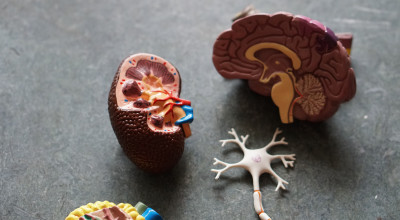Alcohol Abuse vs. Dependence: What’s the Difference?
August 15th, 2018
You will come across many terms you may not understand as you begin to learn about recovery.
Whether you’re exploring the road to recovery while struggling with alcoholism yourself or you are a loved one of someone who is, the difference between “alcohol abuse” and “alcohol dependence” is something you should understand. These are two separate terms with very different meanings. One is prone to binge drinking, while the other may binge drink plus have a variety of other symptoms. Here are the facts on both terms, as well as how to get help for alcoholism.
Official Definitions of Both Alcoholism Terms
You can find the “official” definitions of alcohol abuse and alcohol dependence from the National Institute on Alcohol Abuse and Alcoholism’s Diagnostic and Statistical Manual of Mental Disorders (DSM). The manual used to refer to the terms as “two distinct disorders, with specific criteria for each.” In the most updated version, the institute has combined abuse and dependence into a single disorder: alcohol use disorder, or AUD. AUD has sub-classifications: mild, moderate, and severe.
Despite the two terms now sharing a single definition in the DSM, they still have differences that are important to discern, especially if this is your first foray into the world of sobriety and long-term alcoholism recovery. In the previous version, the DSM defined alcohol abuse as “harmful alcohol use” that caused physical or mental damage to the individual. Someone who continues to use alcohol despite it causing legal, social, and personal problems is an alcohol abuser. Someone who binge drinks qualifies as an alcohol abuser.
Someone who is alcohol dependent fulfills the criteria for an alcohol abuser, but also exhibits other symptoms of alcoholism. These symptoms can include tolerance for alcohol (taking more and more alcohol to achieve the same effects), seeking out opportunities to drink, experiencing withdrawal, drinking to cure a hangover, awareness of the need to use alcohol, and not being able to abstain from drinking. Someone with these signs is alcohol dependent.
What is Binge Drinking?
The definitions of both alcohol abuse and alcohol dependence involve “binge drinking.” Binge drinking is a pattern of drinking that elevates the blood alcohol concentration (BAC) level to 0.08 percent or higher, according to the Centers for Disease Control and Prevention (CDC). This is the equivalent of approximately five drinks for men or four drinks for women in two hours. The CDC also states that most people who binge drink do not qualify as “alcohol dependent.” They may instead be alcohol abusers.
The age group most prone to binge drinking is adults 18 to 34 years old. More than 50 percent of all binge drinks consumed, however, are by people 35 and older. Men are twice as likely to binge drink as women. Men consume four out of five binge drinks. A pattern of binge drinking, or alcohol abuse, is dangerous to the drinker and those around him or her, because binge drinking can increase the risk of accidents, including drunk driving wrecks, as well as unintentional injuries such as falls and alcohol poisoning. It can also lead to violence, sexual assault, unintended pregnancy, liver disease, memory problems, and cancer.
Binge drinking can ultimately lead to alcohol dependence. If you or someone you know has engaged in binge drinking for a few months, he or she is likely alcohol dependent, not just an alcohol abuser. This distinction could signify the individual’s need for professional help. While alcohol abusers also need help overcoming alcoholism, alcohol dependency can come with a variety of other physical and mental health issues, as well as interfere with the person’s daily life.
When to Seek Help for Alcohol Abuse and Dependence
Never be afraid to ask for help if you or a family member is struggling with alcoholism. Whether you suspect alcohol abuse or dependence, professional assistance can facilitate a faster, safer, and more effective recovery. It does not matter if your case is in the earliest stages of alcoholism or it’s been years in the making and someone has hit “rock bottom.” Getting help could save a life.
The following signs indicate it is time to seek assistance with alcohol abuse or dependence:
· Alcohol has interfered with work or school
· The individual has lost his or her job due to excessive drinking
· Alcohol comes before duties at home or in the family
· A pattern of drinking has put the individual in physical danger
· Binge drinking has caused a serious accident
· The individual has lost relationships because of alcoholism
· The individual has built up a tolerance and cannot stop drinking without experiencing symptoms of withdrawal
· Attempts to stop drinking have been unsuccessful, regardless of the consequences
Seek help when binge drinking and alcohol habits interfere with the individual’s life. The sooner you put the issue out into the light, the sooner you or your loved one can get to the heart of what is causing the alcoholism. Only then can the person achieve long-term recovery. If you wish to speak to a friendly professional about whether you or someone you know suffers from alcohol abuse or dependence, reach out to Windmill Wellness for a confidential conversation.
I was a binge drinker, I did not drink daily, but when I drank I did it to change the way I felt, after two drinks, “I felt normal and could relax,” but it often led to drinking 4-5 drinks. Everyone outside of my family viewed me as a professional and did not know I had this issue. Sometimes I could go for a week to several months without drinking. However, each time, I felt horrible the next day and it affected my relationship with my family. My husband and children were affected by this, because I was “not there” while I drank and the day after I wasn’t good for anyone. My binge drinking ended when I took it too far. I do not remember how much I drank, I NEVER drove when I drank, but this time I was so drunk I couldn’t make a wise decision and got in my car. I was a cause of a major head-on collision. I was airlifted to University hospital and, luckily, the other person I hit was not hurt. I, however had fractured pelvis, shattered jaw and a punctured lung.
This is when I decided to get help. Come to find out drinking wasn’t the problem but my anxiety that led to my drinking was. I went to a center and dealt with trauma and anxiety and have never felt better.
An alcoholic isn’t someone who drinks daily or is under a bridge with a paper bag. I am an alcoholic and that accident was the best day of my life because it made me get the real help I needed.
- Windmill Wellness Ranch Founder and CEO, Shannon
Learn More About Alcohol Abuse vs. Dependence
Both alcohol abuse and alcohol dependence can have considerable negative impacts on the drinker’s life. Someone struggling with alcoholism could lose everything, from jobs to relationships. Failing to get help for alcohol abuse can eventually lead to the person building up a tolerance and becoming alcohol dependent. Regardless of the stage of alcohol use you or a loved is in, don’t be afraid to get the help you need.
Windmill Wellness Ranch treats the whole patient. Our experienced and licensed staff treats each client’s physical wellness and the brain. We work to heal the individual suffering from alcohol abuse or dependence, not just to fix the addiction. Our team is happy to provide more information about these two alcoholism terms, as well as the programs we provide for recovery. Learn more by calling (830) 217-3406 or submitting an online inquiry. Our admissions team is available 24/7. We look forward to helping you or a loved one conquer alcohol abuse or dependence.


